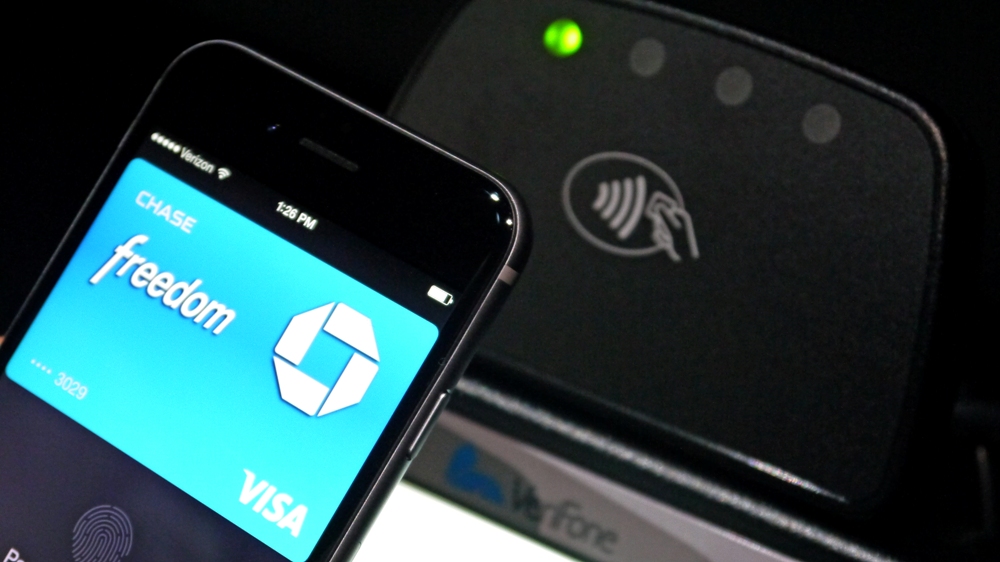Will Apple Pay change the mobile payments world forever?
Apple Pay isn't the only mobile game in town...

We've been hearing a lot about mobile payments lately, with coverage spurred on perhaps largely due to the launch of Apple Pay in the US late last year.
But Apple Pay isn't the only mobile game in town, with other big names wanting a piece of the payment pie – Facebook, for example, is working on plans to enter the market, and there's Snapchat with Snapcash, among others.
While there are comparisons being made left, right and centre, Apple has undoubtedly been dominating the buzz in this area of late. So why the big hype around Apple Pay? What makes it so much more newsworthy than rival systems?
Simplicity and style
The reasons why are quite hard to pinpoint. Perhaps it is Apple's track record of delivering great products that people didn't realise they needed, until they realised they couldn't live without them. Or perhaps it is the firm's attention to simplicity and style, which makes the concept of making a mobile payment in a store less threatening (and indeed easier) for the mobile novice.
Certainly one of the many things Apple is good at is building anticipation at the right time, and in many cases, timing is everything! Just ask its smaller, less successful competitors.
Secondly, and perhaps even more significantly, is the effort Apple expended in partnering with key industry players. The list of banks Cupertino initially signed up represented a majority of cardholders in the US, followed by the addition of a further 500 in time for Apple Pay's launch. And of course this has great benefits for the card associations, since their regular payment rails are being supported and card credential tokenisation promoted.
Apple's approach to making the payment experience simple and secure paves the way to ensure wider acceptance and faith in the potential for success. And this is where other players have failed, despite the inclusion of compelling technology – and don't forget that it's only a matter of time before Tim Cook will turn his eyes eastward.
Are you a pro? Subscribe to our newsletter
Sign up to the TechRadar Pro newsletter to get all the top news, opinion, features and guidance your business needs to succeed!
Apple has also been brilliant at crafting a new position in the growing "alternative" payments market and has mastered the behavioural economics of the situation – working with an extended payments ecosystem, including existing players (card schemes, bank card issuers) to deliver an experience to consumers and retailers that is familiar and intuitive (and yet perceived to be innovative).
Questions, questions…
Nonetheless, there have certainly been questions asked to temper all the hype. From my perspective, a big factor is whether this move, while significant, is perhaps too small a step. It's a bit of an old argument that making a payment with a card is not very difficult, so the focus on the ease of payment, while in keeping with Apple's attention to a seamless user experience, was a relatively weak point when it came to the launch spiel last year.
Some may argue that it's necessary to take a small step at first, to allow the average consumer to absorb the change. But for many, the lack of a public-facing plan for loyalty, rewards, location-based services and other value-adding integrations from the company is less than ideal. And then of course there are the questions around what's in it for the banks and the retailers? Which brings me to what's in it for Apple – a company that makes far more money off selling devices in a single quarter than it could conceivably be expected to earn off Apple Pay in the next two years.
Here's another good question: Is this in fact the first step in a carefully crafted strategy to change the infrastructure of payments forever?
Whatever the answers are, there's no doubting that there have been plenty of iPhone 6 owners rushing (or at least walking) to participating retailers to try out their new payment capability, and despite the increased noise in the mobile payments space, the last few months have most certainly belonged to Apple.
At the end of the day though, it is consumers who will win. By choice.
- John Gessau is Director, Product Management (Mobile) at ACI Worldwide